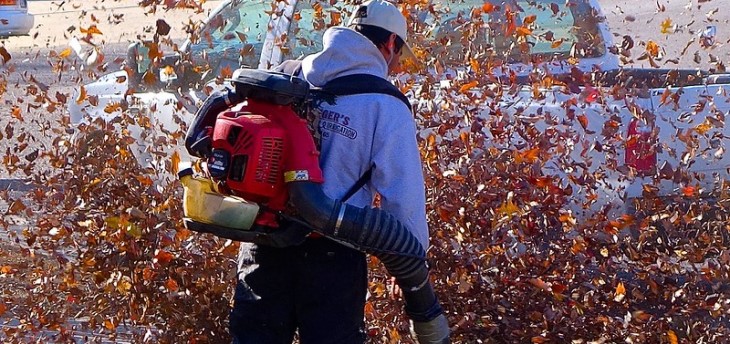The State We're In
Winter’s sounds of silence soon to be broken
By Jay Watson, Co-Executive Director
Winter is the northeast’s quiet season, when songbirds go south, many animals hibernate, and people spend more time indoors. On the increasingly rare occasions when a blanket of snow covers the landscape, New Jersey is as silent as it can get, with even our constant drone from traffic muffled!
With the start of spring just days away – the vernal equinox arrives on March 19 – the (relative) sounds of silence are about to be broken.
Spring is a noisy reawakening of nature, a time relished by outdoor enthusiasts. Amphibians like spring peepers and wood frogs come out of hibernation and begin chorusing to attract mates, and migratory songbirds return from their winter homes to serenade potential mates with melodious songs.
Spring also brings the happy sounds of kids playing outside, families returning to favorite parks, and people enjoying their yards, decks, gardens and patios.
But warmer weather has a downside: We’ll soon hear the incessant roars and whines of gas-powered lawn mowers, leaf blowers and line trimmers. These high-decibel noises not only drown out the sounds of nature, but drive people back indoors, depriving them of much-needed outdoor time.
The irritating sounds of landscaping equipment come on top of New Jersey’s “everyday” noise, much of it from road and air traffic. Due to our high concentration of highways and airports, and our location between New York City and Philadelphia, New Jersey is considered one of the places in the country most impacted by noise.
Noise pollution, also called “environmental noise,” is defined as any unwanted or disturbing sound that affects the health and well-being of humans and other organisms.
The World Health Organization (WHO) considers noise pollution an environmental risk to health, and estimates that 1 million healthy years of life are lost every year due to environmental noise impacts, including sleep disturbance, heart disease, and stress from annoyance.
With all this in mind, a growing number of New Jersey towns are trying to reduce noise pollution within their borders by enacting restrictions – or even complete bans – on blowers powered by two-stroke gas engines.
Studies have found that two-stroke engines produce sound waves that travel long distances and even pass through walls and windows. That makes the noise almost impossible to escape, even indoors.
In addition to being exceptionally loud, gas blowers emit air pollutants. Their two-stroke engines are more polluting than cars, because gasoline and oil are combined in one system and emissions from both are released during use.
South Orange and Princeton are among the New Jersey towns that have instituted seasonal bans on gas leaf blowers, allowing them to be used only during the spring and fall. Last November, Morristown voters joined them by approving a referendum to ban the use of gas-powered leaf blowers from January through September.
Two Essex County towns, Maplewood and Montclair, have gone a step further by completely banning gas-powered leaf blowers year-round. Maplewood’s total ban went into effect in January 2023 after six years of a partial ban. Last August, Montclair’s town council also passed a complete ban, which went into effect in the fall. Landscaping companies have sued.
Time will tell whether the bans will hold up, and whether other New Jersey towns will follow suit in an attempt to improve their residents’ quality of life.
Meanwhile, there are a number of actions that can be taken by individuals: Consider how much lawn you really need, and whether it must be constantly manicured. Shrinking your manicured lawn and adding more native trees, shrubs and wildflowers, and leaving some leaves on the ground in the fall, will not only require less maintenance, but will help insect pollinators, birds and other wildlife.
With less manicured space to maintain, you may be able to rely more on quiet, old-fashioned, non-polluting manual tools like push mowers, rakes, manual edgers and hand clippers. And with all that exercise, you could cut down on your time at the gym!
According to an old expression, silence is golden. Medical science bears this out. Quiet time stimulates the growth of brain cells, improves memory, relieves stress, improves heart health, and enhances focus and creativity. And with more and more people working from home, the need for reliable quiet time is an issue that isn’t going away.
Want to learn more? The organization Quiet Montclair has a website, www.quietmontclair.org, with lots of information on noise pollution studies and alternatives to using gas-powered engines for lawn maintenance. Though the organization is focused on Montclair, the information is a good resource for residents and elected officials from any town.
What are your thoughts on the need for quiet, and the best way to achieve it in this densely-populated state we’re in? Please let me know at info@njconservation.org.
And to learn about preserving New Jersey’s land and natural resources, visit the New Jersey Conservation Foundation website at www.njconservation.org.
About the Authors
Alison Mitchell
Co-Executive Director
John S. Watson, Jr.
Co-Executive Director
Tom Gilbert
Co-Executive Director, 2022-2023
Michele S. Byers
Executive Director, 1999-2021
View their full bios here.
Filter
Get The Latest News
From The Garden State
In the
News

